
Politics
16:30, 15-Dec-2017
White paper hails 'remarkable progress' in human rights protection
CGTN
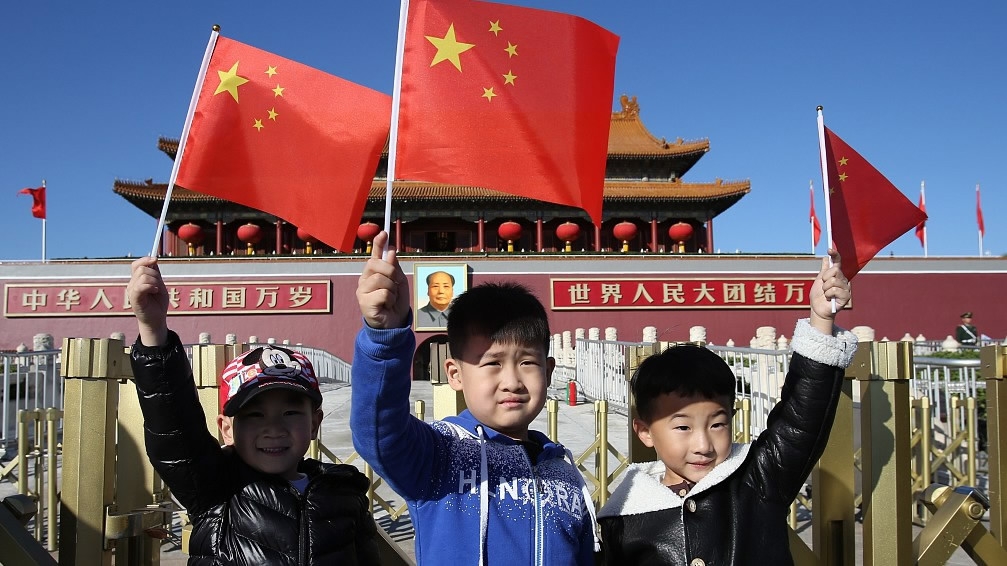
China has claimed “remarkable progress” in its protection of human rights over the past five years.
The country’s State Council Information Office on Friday released a white paper titled "New Progress in the Legal Protection of Human Rights in China".
It covers legal protection of human rights as well as social mechanisms’ and the Party’s role in protecting rights. It also focuses on human rights globally.
Civil, political rights better protected
China has improved legislation to better protect the civil and political rights of its people, according to the white paper. There have also been notable moves towards leniency.
The past five years have seen the Criminal Law revised to abolish the death penalty for nine charges ranging from weapons smuggling to pimping to counterfeiting currency.
China has also implemented a system of two-year suspended death penalties for lesser crimes, plus granted amnesty for four types of criminals.
These include war veterans, those aged over 75 or who have disabilities, and those two committed crimes while under the age of 18.
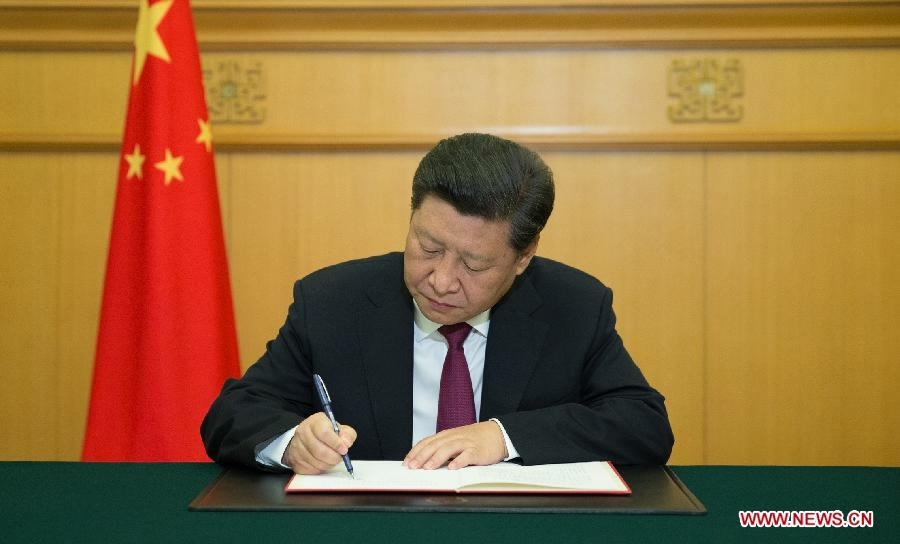
Chinese President Xi Jinping signs a prisoner amnesty deal in Beijing, capital of China, Aug. 29, 2015. /Xinhua Photo
Chinese President Xi Jinping signs a prisoner amnesty deal in Beijing, capital of China, Aug. 29, 2015. /Xinhua Photo
The white paper noted that more protection has been given to special groups – juveniles, mental patients, elderly people with dementia and disabled people. The Anti-Domestic Violence Law has made clear the legal liabilities of the perpetrators and the procedure of investigation.
China has also revised the Criminal Law, putting tougher penalties in place for buyers of abducted women and children, according to the white paper.
Public awareness for human rights protection
China has been working to raise public awareness of the rule of law and ensure that governments act legally.
When assuming office, state officials are required to take a public oath promising they will uphold the Constitution.
Almost all elementary and middle schools have designated vice principals or counselors in charge of educating pupils on their rights and the rule of law, according to the white paper.
Enterprises are urged to make employees aware of their rights, it added.
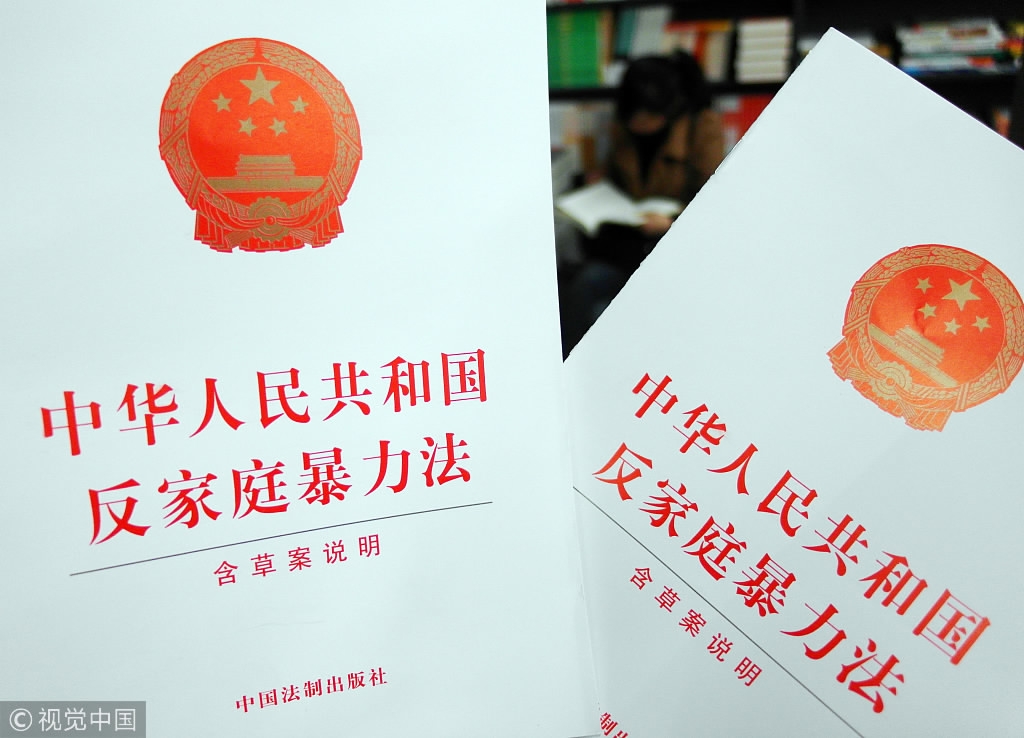
The China's first Anti-Domestic Violence Law. /VCG Photo
The China's first Anti-Domestic Violence Law. /VCG Photo
Fight against corruption
President Xi Jinping’s battle against corruption has been well-publicized. The white paper said the Communist Party of China’s (CPC) zero-tolerance approach to graft is designed to guarantee people's interests.
It noted how the CPC has revised its code of conduct for officials and toughened supervision and punishments.
Since the 18th CPC National Congress, the CPC Central Commission for Discipline Inspection has investigated more than 440 Party officials at or above the provincial level and other officials registered at and supervised by the CPC Central Committee, according to official data.
"This strong enforcement has acted as a powerful deterrent," the white paper said.
In 2016, 57,000 Party members felt compelled to confess their violations of Party codes of conduct.
Under the "Sky Net" operation, China has intensified its efforts to pursue, repatriate and extradite fugitives accused of corruption.
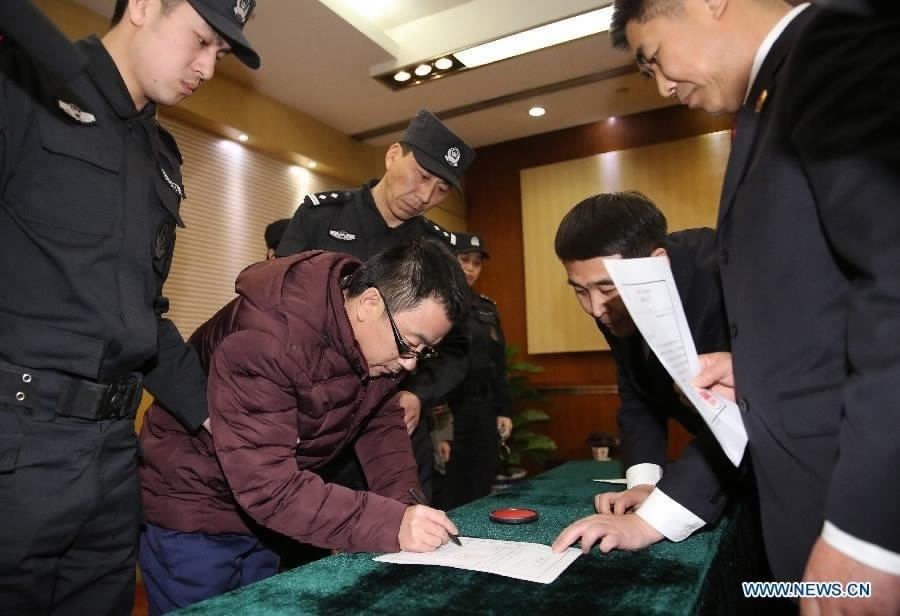
Fu Yaobo (L2), one of China's most wanted fugitives, signs on the arrest warrant as he is taken back under escort at Beijing capital airport, February 6, 2016. /Xinhua Photo
Fu Yaobo (L2), one of China's most wanted fugitives, signs on the arrest warrant as he is taken back under escort at Beijing capital airport, February 6, 2016. /Xinhua Photo
From 2014 to mid-October 2017, 3,453 fugitives were brought back from more than 90 countries and regions, including 48 on a list of 100 most wanted fugitives, and illegal assets worth 9.5 billion yuan (around 1.44 billion US dollars) were recovered.
Law-based administration
The white paper also said that the public has been given greater clarity on the administrative structure and its powers, procedures and responsibilities, and that administrative organs have been restricted from operating outside of the law.
Since the 18th National Congress of the CPC in 2012, State Council departments have canceled the requirement for administrative approval on 618 items.
China has implemented a system of official transparency through which the public can obtain information about government functions, duties and powers, and their legal basis. By 2016, 31 provincial-level governments had published such lists, according to the white paper.
China is also exploring the possibility of holding officials accountable for major decisions for life.
Global human rights
The country has played an active role in bolstering human rights protection worldwide under the rule of law, according to the paper, noting that "China has always safeguarded world peace and contributed to global development, and upholds the international order."
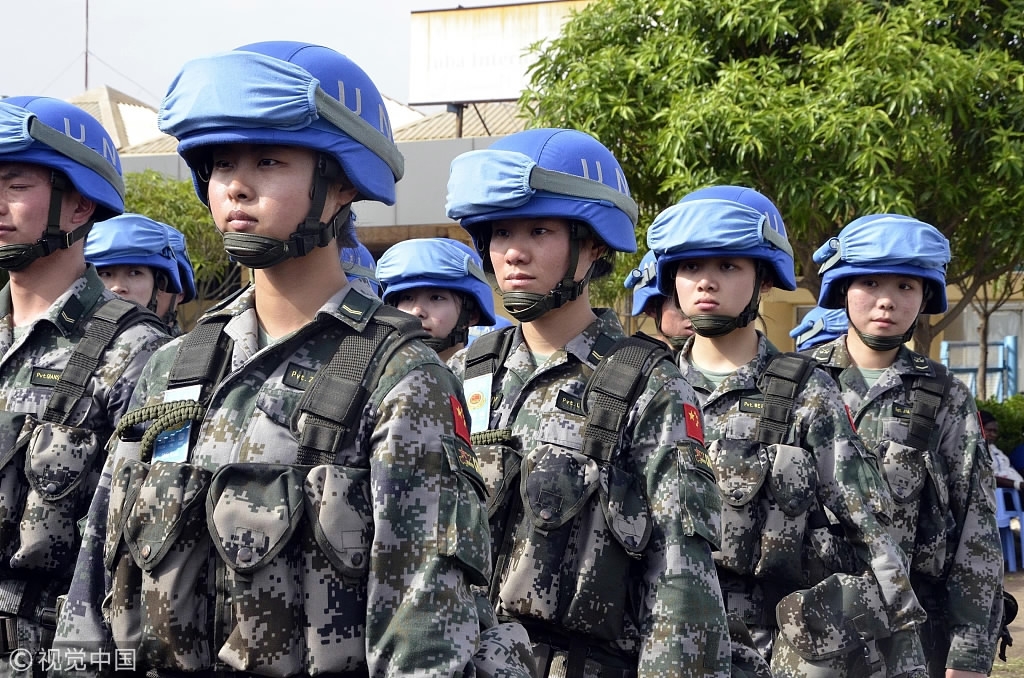
Chinese peacekeeping troops, the last detachment of the country's first deployment of a full infantry battalion for a United Nations (UN) peacekeeping mission arrive at Juba International Airport on April 8, 2015. /VCG Photo
Chinese peacekeeping troops, the last detachment of the country's first deployment of a full infantry battalion for a United Nations (UN) peacekeeping mission arrive at Juba International Airport on April 8, 2015. /VCG Photo
From 1990 to August 2017, 36,000 Chinese military peacekeeping personnel were sent abroad to take part in 24 UN peacekeeping operations. In 2017, China had a peacekeeping standby force of 8,000 troops, figures from the white paper show.
(With inputs from Xinhua)

SITEMAP
Copyright © 2018 CGTN. Beijing ICP prepared NO.16065310-3
Copyright © 2018 CGTN. Beijing ICP prepared NO.16065310-3